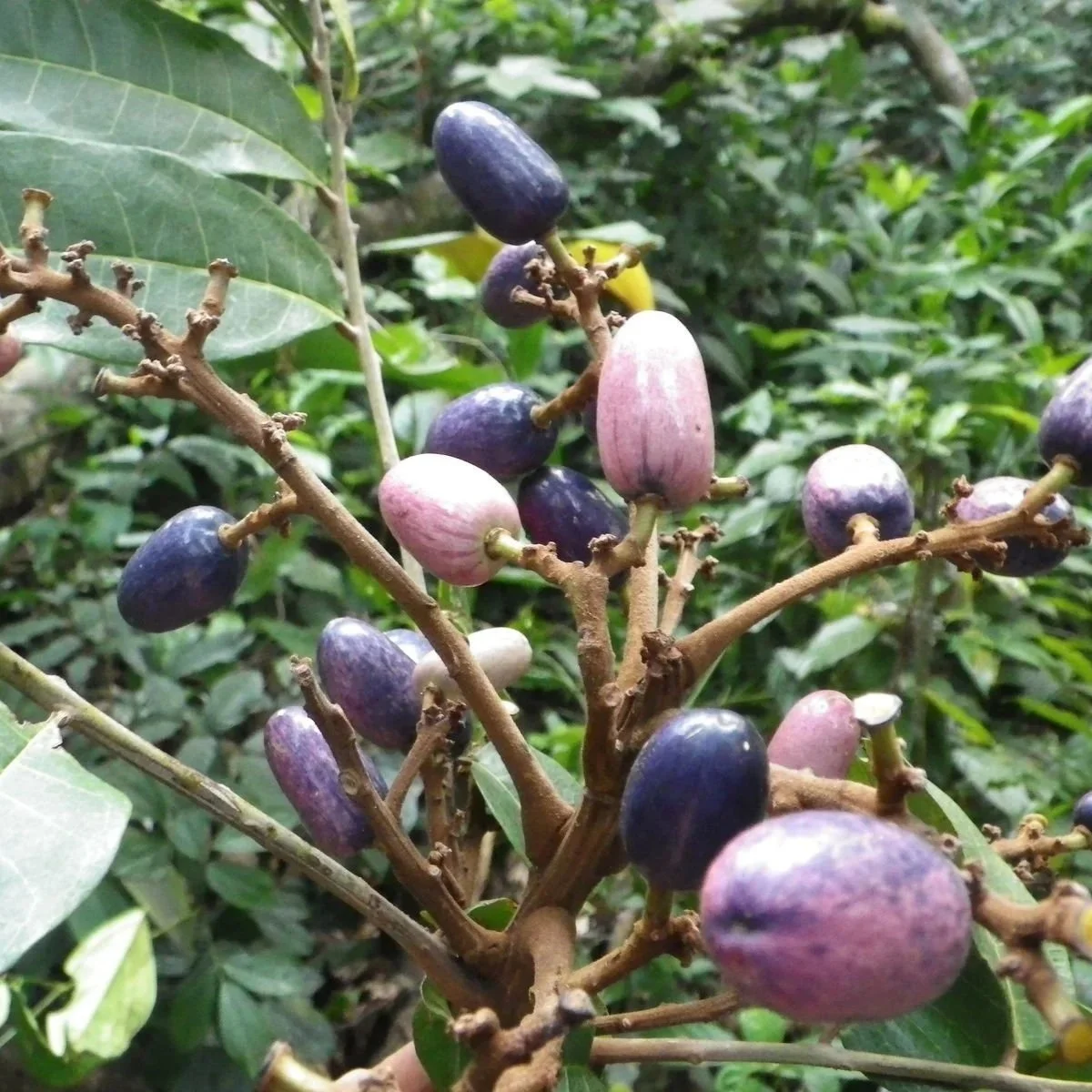 Image 1 of 2
Image 1 of 2

 Image 2 of 2
Image 2 of 2



Dacryodes edulis - African Pear
Dacryodes edulis, commonly known as African plum, safou, or bush pear, is a highly valued fruit tree native to the humid tropical regions of Central and West Africa. Belonging to the Burseraceae family, this evergreen tree produces oblong, violet to bluish fruits that are rich in oil and nutrients. The pulp is edible and often softened by roasting or boiling, resulting in a buttery texture and a flavor similar to avocado. Dacryodes edulis is an important food source throughout tropical Africa, providing essential fats, proteins, and vitamins. It is also cultivated for its economic value, with the fruits traded in local and international markets.
The tree thrives in well-drained, fertile soils and can reach heights of 18 to 40 meters under favorable conditions. In addition to its nutritional and economic importance, Dacryodes edulis contributes to agroforestry systems by improving soil fertility and providing shade. Its resin, bark, and leaves are used in traditional medicine to treat skin infections, fevers, and digestive disorders. As a multipurpose species, it plays a key role in both rural livelihoods and environmental sustainability across its native range.
Seeds are from a cultivated tree and are shipped in packs of one, in humid vermiculite.
Dacryodes edulis, commonly known as African plum, safou, or bush pear, is a highly valued fruit tree native to the humid tropical regions of Central and West Africa. Belonging to the Burseraceae family, this evergreen tree produces oblong, violet to bluish fruits that are rich in oil and nutrients. The pulp is edible and often softened by roasting or boiling, resulting in a buttery texture and a flavor similar to avocado. Dacryodes edulis is an important food source throughout tropical Africa, providing essential fats, proteins, and vitamins. It is also cultivated for its economic value, with the fruits traded in local and international markets.
The tree thrives in well-drained, fertile soils and can reach heights of 18 to 40 meters under favorable conditions. In addition to its nutritional and economic importance, Dacryodes edulis contributes to agroforestry systems by improving soil fertility and providing shade. Its resin, bark, and leaves are used in traditional medicine to treat skin infections, fevers, and digestive disorders. As a multipurpose species, it plays a key role in both rural livelihoods and environmental sustainability across its native range.
Seeds are from a cultivated tree and are shipped in packs of one, in humid vermiculite.

